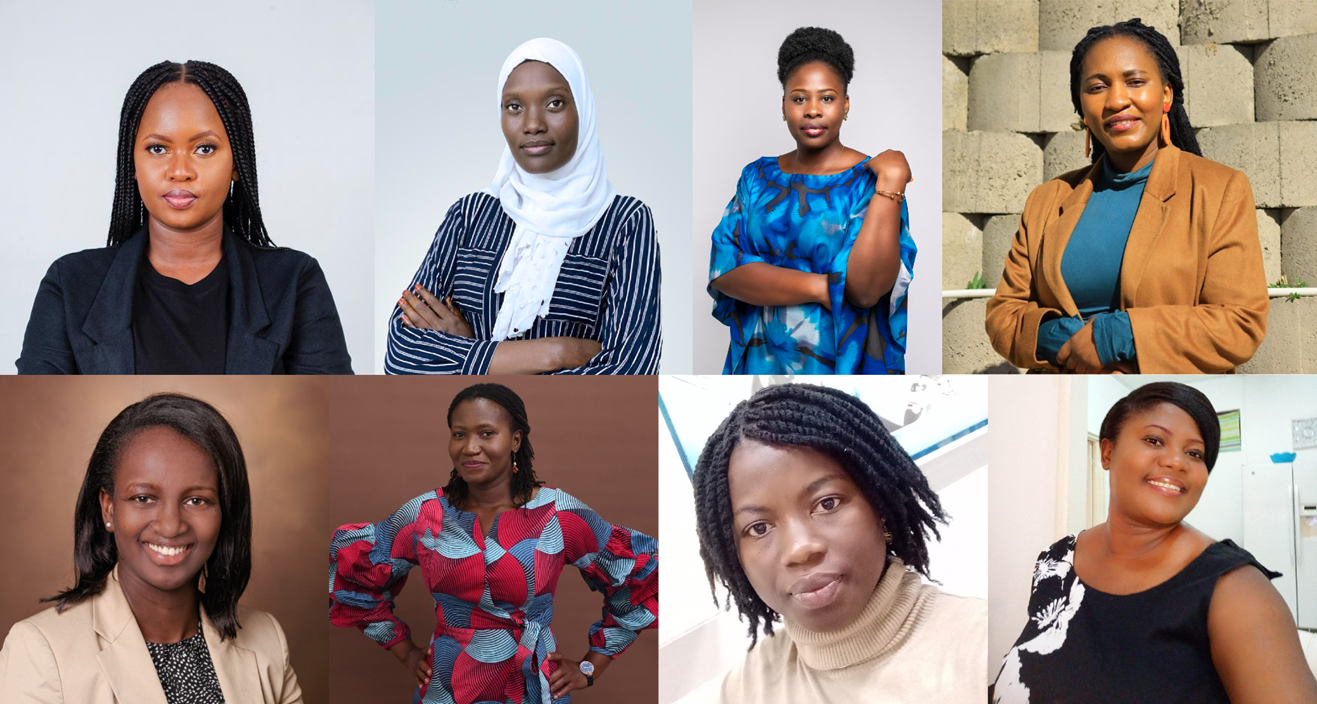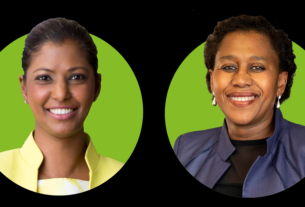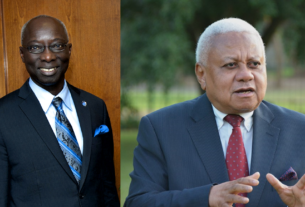On November 8, the L’Oréal Foundation and UNESCO announced the names of the 30 winners of the 14th “L’Oréal-UNESCO Young Talent Award for Women in Science”. This prize rewards and supports African women scientists for the quality of their scientific research.
For this 14th edition, 25 doctoral students and 5 post-doctoral researchers were rewarded at the annual ceremony held on November 9 in Kasane, Botswana, in the presence of the country’s president, Mokgweetsi Masisi.
“Talented women scientists have never needed so much support, yet global research efforts are not moving fast enough. African scientists account for just 2.5% of the world’s researchers. And, as the social, political, economic and environmental crises worsen daily, it is now crucial to harness all scientific talent to ensure a fairer and more sustainable future for the continent”, says the l’Oréal Foundation.
Created in 2000, the national and regional “L’Oréal-UNESCO Young Talents for Women in Science” programmes award over 250 research fellowships each year in more than 110 countries. Their aim is to enable women scientists to pursue their careers and, more generally, to promote and highlight the crucial importance of women in science.
This year, the L’Oréal Foundation and UNESCO, it is explained, wished to strengthen their commitment to gender equality in science, and reward 30 talented young women researchers, 10 more than in previous years. They were selected from 632 applications for the quality and scope of their scientific work by a 10-member jury chaired by Professor Aggrey Ambali, Director of Technical Cooperation and Programme Funding at the African Union’s development agency, AUDA-NEPAD. The women scientists come from 17 African countries, including Cabo Verde and Lesotho, represented for the first time.
“Bearers of hope and innovative solutions for the African continent, the 30 scientists in the L’Oréal-UNESCO Young Talent Award for Women in Science 2023 have committed themselves to a wide range of research fields. Using novel approaches, they are tackling major challenges with the aim of improving the quality of life in Africa and throughout the world”, says the L’Oréal Foundation.
Below are this year’s 30 winners:
Southern Africa
Constance Chingwaru (Zimbabwe), PhD in Biotechnology Biological Sciences Laboratory
Bindura University of Science Education
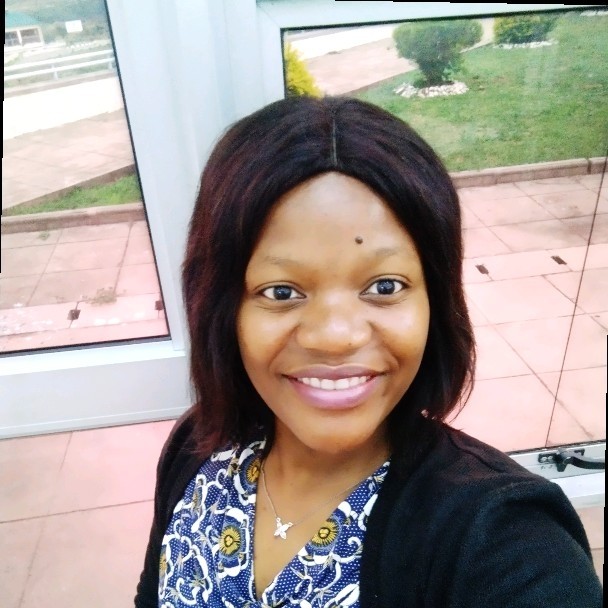
Constance Chingwaru is being rewarded for her innovative work to create an effective biopesticide to control the armyworm in maize crops, using plants from Zimbabwe. She was mentored by her uncle, a science teacher and thesis supervisor, whom she describes as a pillar of support.
Nthabeleng Hlapisi (Lesotho), PhD student in pharmaceutical chemistry
Organic and Materials Group
University of Kwazulu Natal
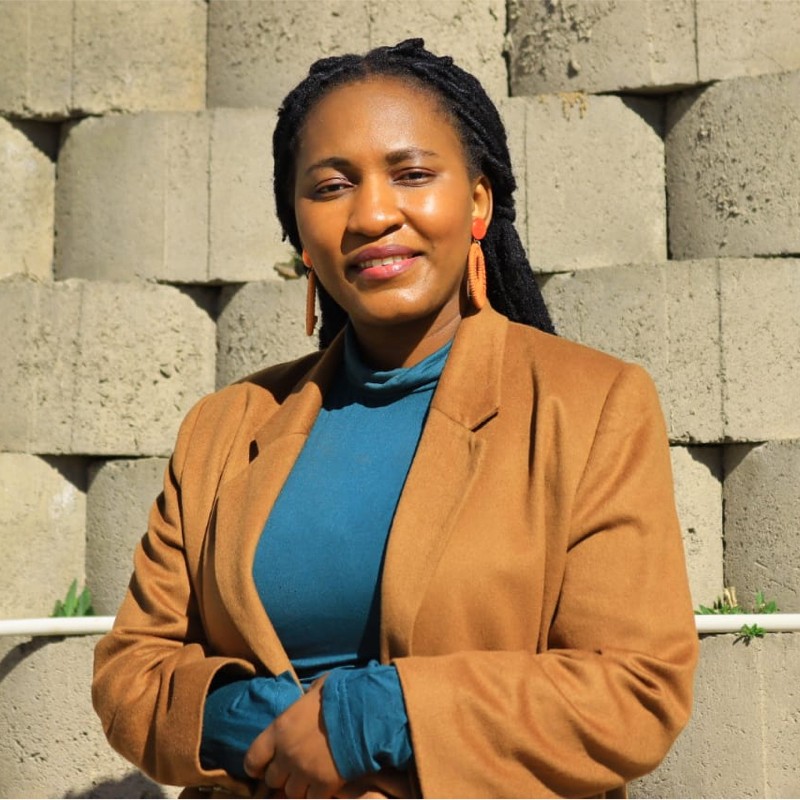
Nthabeleng Hlapisi is a PhD student from Lesotho with a background in mentoring and research. Her work is based on medicinal chemistry in South Africa. She has won awards for her research into improving existing phototherapies to better treat cancer. Having made her way independently in the scientific field, she actively supports young people in their career paths.
Maria Nelago Kanyama (Namibia), PhD Candidate in Artificial Intelligence (AI) Digital Forensics and Information Security Cluster Research Institute (DFIS)
Namibian University of Science and Technology

Maria Nelago Kanyama is being rewarded for advancing research using technologies such as machine learning to detect unbilled water (which is lost before it reaches the customer) and tackle the problem of water scarcity in Namibia and beyond. She strives to turn her revolutionary ideas into tangible realities, while making a lasting impact on the global water scarcity crisis.
Mesha Mbisana (Botswana), PhD candidate in analytical chemistry Department of Chemistry
University of Botswana
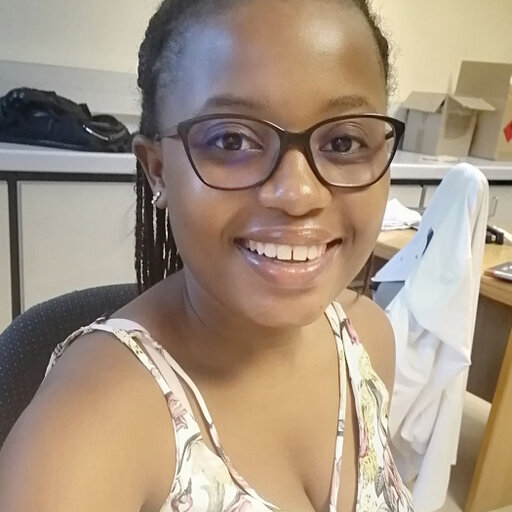
Mesha Mbisana is rewarded for her work to improve the safety of food crops such as maize and sorghum by eliminating harmful toxins, in order to improve the health of Botswana communities.
Felicidade Niquice (Mozambique), PhD in Occupational Health and Safety National Health Institute
University of Porto, Portugal
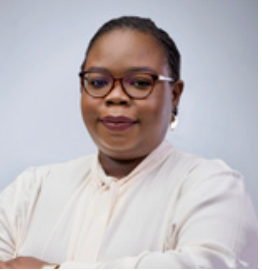
Felicidade Niquice is a Mozambican doctoral student and physician pursuing research in the field of occupational health and safety. In particular, she has won awards for her work in promoting safer working conditions in the country’s hospitals, thereby strengthening healthcare. She is inspired by helping her patients and giving back to her community.
Bonolo Phinius (Botswana), PhD in Infectious Diseases Harvard HIV Reference Laboratory in Botswana
Harvard Health Partnership in Botswana, University of Botswana
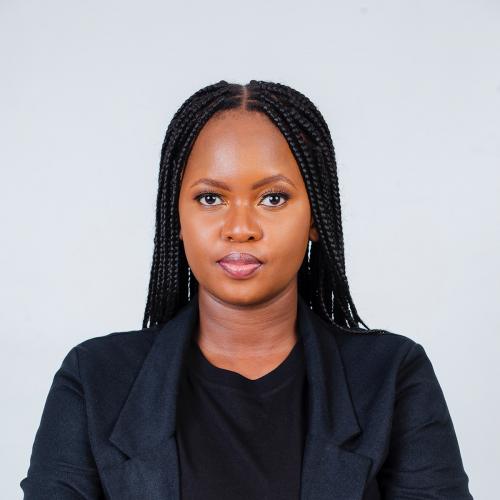
Bonolo Phinius is being recognized for her work in shedding light on the prevalence of hepatitis B virus (HBV) in Botswana, where a lack of research into the disease has prevented any progress in treatment and prevention. Her circle of mentors and supporters has helped her navigate her research journey and balance her professional and private life.
Bhamini Sreekeessoon (Mauritius), Doctoral student in electrical and electronic engineering
University of Mascareignes Research Laboratory
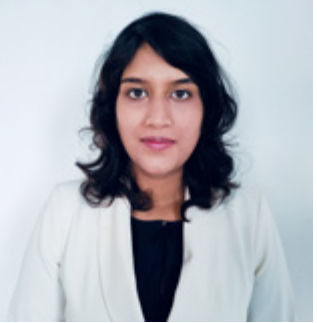
Bhamini Sreekeessoon is being recognized for her work on marine renewable technologies in Mauritius, harnessing the island’s tidal energy to contribute to a cleaner, more sustainable future. Her scientific career has been supported by her family and, in 2021, she represented her island at MT180 in Paris, where PhD students present their research to the public.
Central Africa
Dairou Hadidjatou (Cameroon), PhD student in Cellular Physiology
Institute for Medical Research and Medicinal Plants
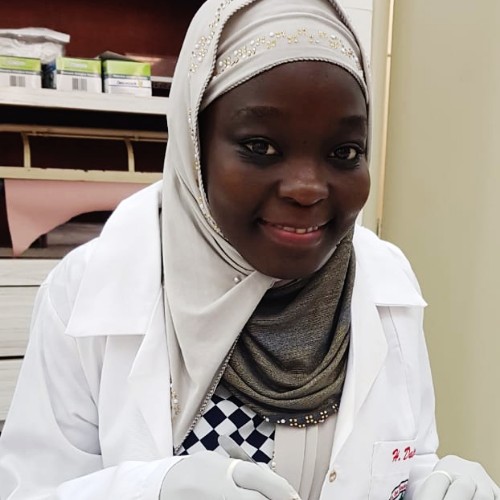
Dairou Hadidjatou has been rewarded for her pioneering biological research in Cameroon, where she is exploring the potential of the indigenous Garcinia kola plant in the treatment of cardiovascular disease. She overcame the traditional prejudices of her community to pursue her scientific studies, demonstrating to her colleagues and to society that women can play their part in the community and excel as scientists.
Lydie Messado Kamga (Cameroon), Doctoral student in ecology Plant systematics, botany and ecology laboratory, Ecole Normale Supérieure
University of Yaoundé 1; botany and modeling of plant architecture and vegetation, IRD France
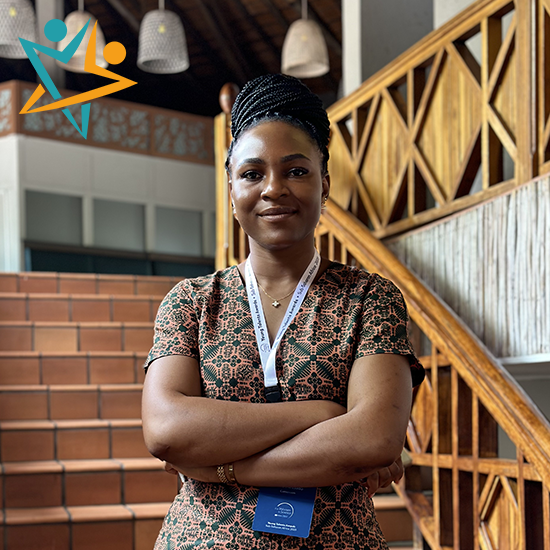
Lydie Messado Kamga receives an award for her research into orchid conservation. She overcame challenges such as the physical effort of data collection (in the tropical forests of Cameroon), field logistics and the lack of funding, laboratories and equipment to persevere on her scientific journey.
Fanta Yadang Sabine Adeline (Cameroon), Post-doctoral researcher in neuroscience Laboratory: pharmacology and drug discovery
Institute for Medical Research and Medicinal Plant Studies
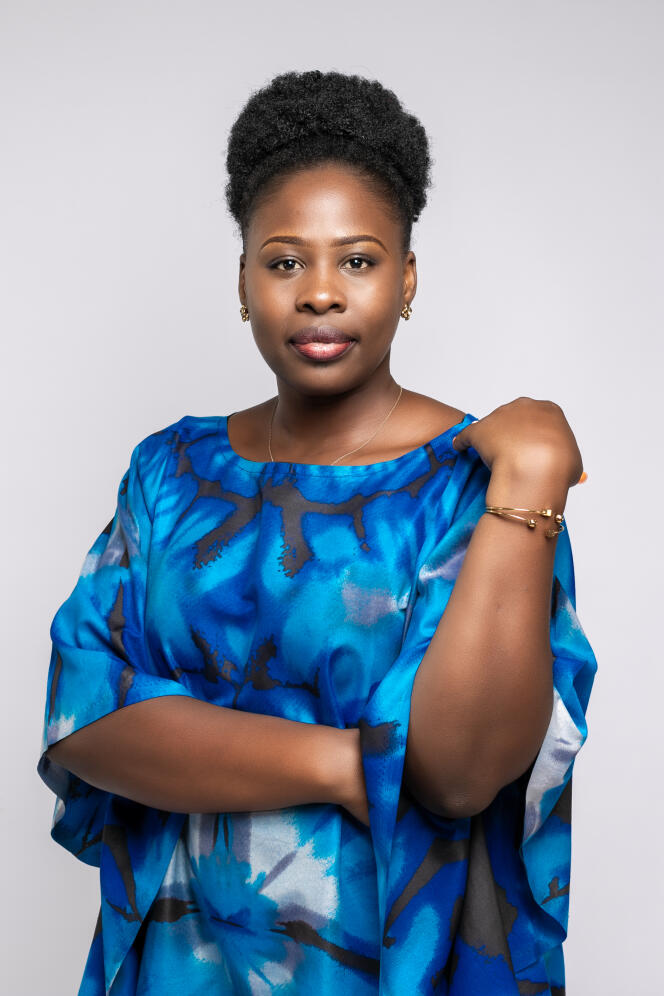
Fanta Yadang has been rewarded for her research into medicinal plants that could help cure Alzheimer’s disease. In a region where girls are not encouraged to go to school, she has risen to defy stereotypes and overcome discrimination in the workplace, forging her own path to scientific excellence. She is determined to persevere with her dreams and set an example for young girls in Cameroon and beyond.
East Africa
Hemen Tesfaye Gelaw (Ethiopia), Doctoral student in microbiology
Laboratory: Bio-instrumentation
Addis Ababa University
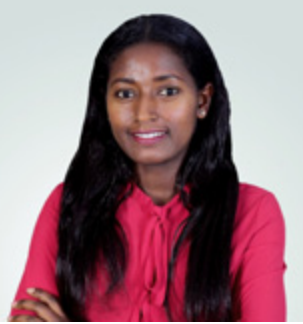
Hemen Tesfaye Gelaw is recognized for her work in preventing antimicrobial resistance by studying pathogenic bacteria in agricultural supply chains. Based in Ethiopia, she overcomes the lack of laboratory equipment and chemicals by leveraging her versatility to collaborate and learn new methods of experimentation.
Cheryl Kerama (Kenya)
Laboratory: Respiratory Disease Research Centre
Kenya Medical Research Institute, University of Washington Kenya (UW-K)
Kavi Clinical Research Institute, University of Nairobi
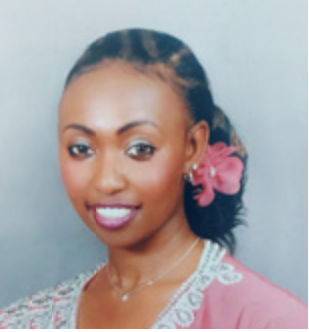
Cheryl Kerama is renowned for her work discovering genes in idiopathic pulmonary fibrosis (a potentially fatal lung disease) and for demonstrating the influence of dysglycemia (abnormal sugar regulation) on the development of tuberculosis with or without HIV co-infection.
Mwende Mbilo (Kenya), PhD student in condensed matter physics
Department of Physics, University of Nairobi
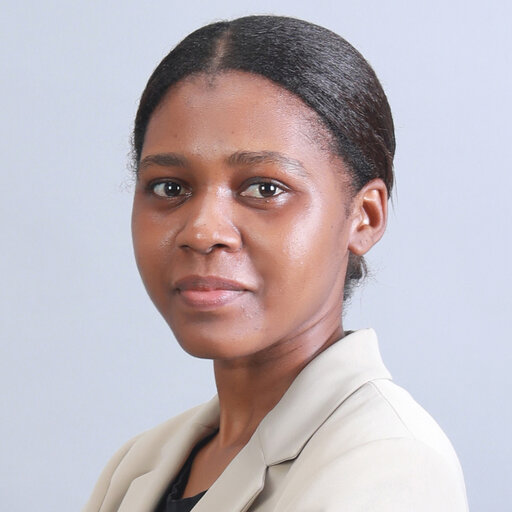
Mwende Mbilo is a PhD student innovating to improve the efficiency of organic solar cells in order to bring more sustainable and reliable clean energy solutions to the people of her home country, Kenya. She boldly overcomes the challenge of gender inequality in the workplace and is determined to support and encourage her female scientific colleagues.
Naelijwa Mshanga (Tanzania), PhD student in nutrition and dietetics
Nelson Mandela African Institution for Science and Technology
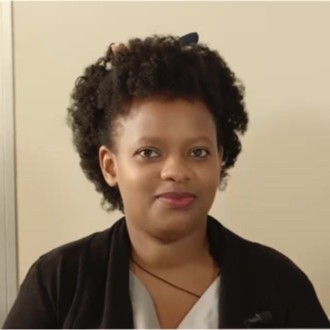
Naelijwa Mshanga is a PhD student studying the relationship between toxins in food and nutritional deficiencies in children in Tanzania, with the aim of improving food security and nutritional adequacy. Determined to pursue her scientific studies at a higher level, she overcame the lack of science teachers in her school by taking private lessons to pass the national exams that led her to university.
Faith Njeru (Kenya), PhD student in food safety and agri-food SACIDS molecular laboratory
Sokoine University of Agriculture, Tanzania

Faith Njeru uses nanobodies derived from the serum of camelids (a family of mammals including camels and llamas) to combat a viral disease affecting maize plants in East Africa and beyond. Based in Kenya, she overcame low salaries, short-term contracts and lack of funding and equipment to persevere with her studies.
Devotha Godfrey Nyambo (United Republic of Tanzania), Post-doctoral researcher in automation and control systems Multidisciplinary Anglophone Research Laboratory in Africa
Nelson Mandela African Institution for Science and Technology
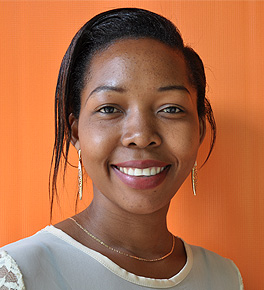
Devotha Nyambo is rewarded for her work in using machine learning to identify an infectious disease in Tanzanian sheep and goat herds. Her research will help empower small-scale women farmers and improve their livelihoods. She has learned to overcome the ups and downs of research by keeping her life’s purpose and scientific vision in mind.
Grace Umutesi (Rwanda), PhD in implementation sciences Laboratory: study on the efficacy of the single-dose HPV vaccine in Kenya (KEN SHE)
Washinton University, Seattle, USA
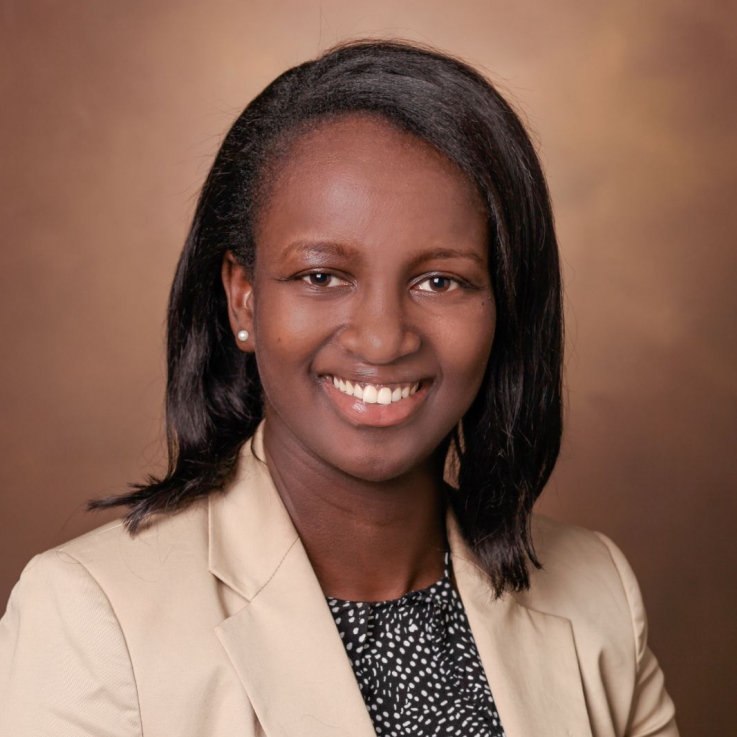
Grace Umutesi is a PhD student who uses implementation science to address gaps in health provision in low- and middle-income countries. Originally from Rwanda, she is recognized for her work in cervical cancer prevention, highlighting the need to improve access to HPV vaccination in Kenya. Despite many challenges, she has pursued her dream of contributing to the health and well-being of all.
Esther Uwimaana (Uganda), PhD student in molecular biology
Laboratory: Molecular Biology Laboratories, Institute of Biomedical Research
Faculty of Medicine and Health Sciences, Stellenbosch University, South Africa.
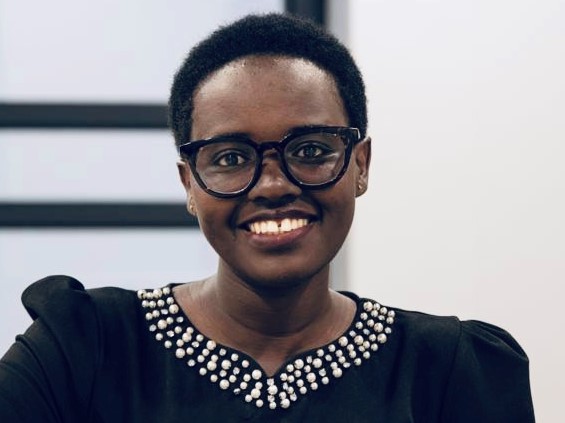
As part of a collective effort to combat tropical diseases in sub-Saharan Africa, Esther Uwimaana is conducting research into potential tuberculosis vaccines. She is actively involved in fund-raising and the search for scientific opportunities for women.
West Africa
Temitope Abiola (Nigeria), PhD student in biochemistry Laboratory: Environmental biotechnology
Redeemer University

Temitope Abiola is a Nigerian PhD student conducting research in biochemistry to produce a more sustainable, renewable and higher quality biodiesel. She has worked hard to balance life and scientific research, relentlessly pursuing her dreams as a versatile and dynamic woman in the sciences.
Ini Adinya (Nigeria), Post-doctoral student in applied mathematics University of Ibadan
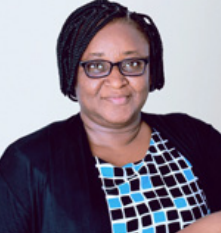
Ini Adinya is rewarded for her work in (clarifying the performance and benefits of investments). In Nigeria, she overcame discrimination in the workplace and persevered to raise the funds needed to continue her studies. Ini is passionate about the role of women in science and the importance of developing more female talent in the world of research.
Bernice Konadu Agyeman (Ghana), Doctoral student in environmental sciences Alpha and Gamma spectrometry laboratory, Radiation Protection Institute
Atomic Energy Commission of Ghana
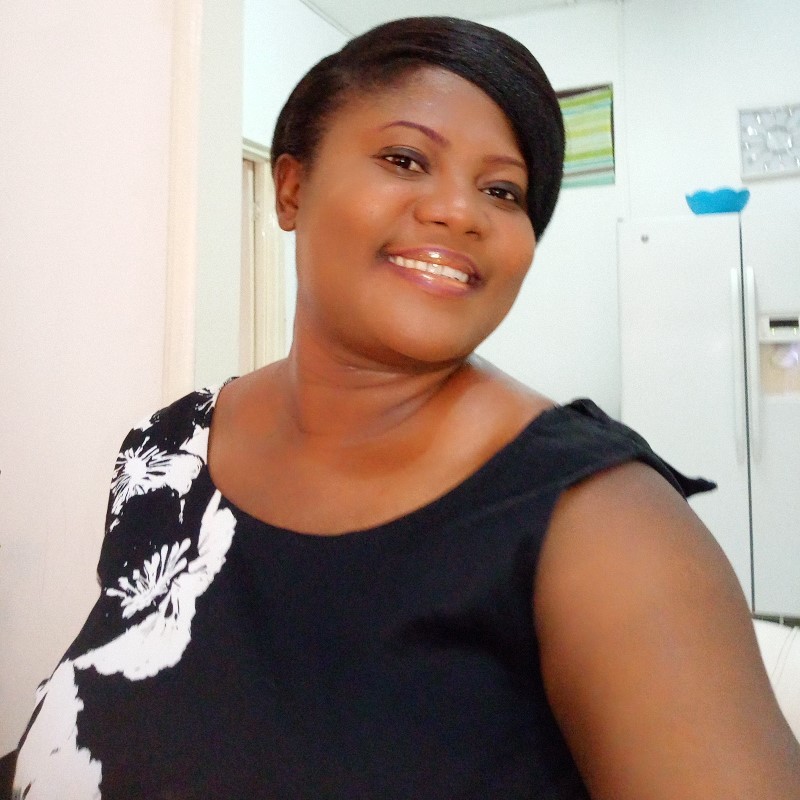
Bernice Konadu Aygeman has been rewarded for her studies on drinking water quality in Ghana, which are intended to help policy-makers deal with the risks of water-borne diseases. She overcame funding difficulties and a lack of scientific equipment thanks to the support of donors, NGOs and other stakeholders. This is the beginning of her quest to solve Africa’s environmental problems.
Mary Amoako (Ghana), Post-doctoral researcher in nutrition and dietetics
Human Genetics and Genomics Laboratory
Kwame Nkumah University of Science and Technology (KNUST)
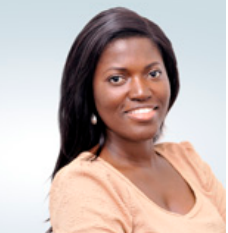
Dr Mary Amoako studies how diet and nutrition influence the likelihood of babies developing orofacial clefts (OFC), facial malformations occurring early in pregnancy and contributing to perinatal deaths. After completing her doctorate at Michigan State University, she founded a nutrition and lifestyle company in Ghana, advising Ghanaian women in particular.
Dorcas Atibilla (Ghana), Doctoral student in medical entomology
Laboratory of the Mosquito, Termite and Rodent Control Committee of the City of New Orleans, USA
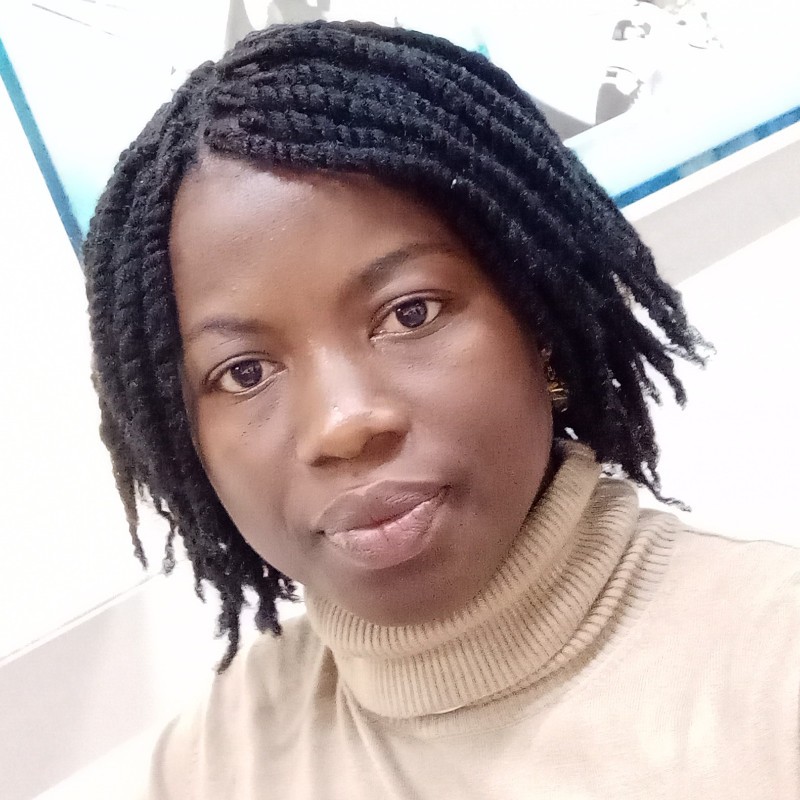
Dorcas Atibilla is rewarded for her work to combat malaria in Ghana and beyond by better understanding mosquito behavior, disease transmission and insecticide resistance. Mentoring played a key role in shaping her career path, as did professional networks and active fund-raising to support her studies.
Pamela Borges (Cape Verde), Post-doctoral researcher in oncology Laboratory: Molecular Biology
Institution: Agostinho Neto University Hospital
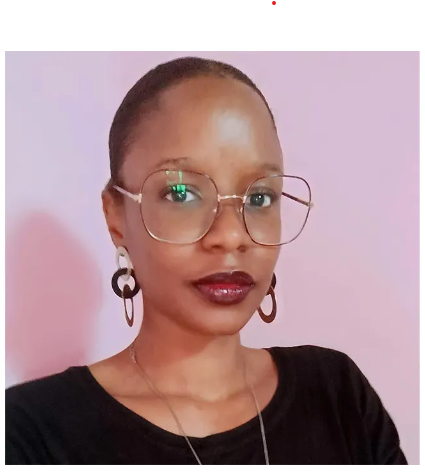
Dr Pamela Borges is a post-doctoral student from Cape Verde specializing in oncology. She was recognized for her pioneering research into the prevalence of inherited genetic mutations in breast cancer patients. She has persevered in her scientific career despite the lack of resources and infrastructure in her country, seeking funding and grants from international sources.
Kafayath Fabiyi (Benin), Doctoral student in bacteriology and virology
Laboratory: Applied Microbiology and Pharmacology of Natural Substances Research Unit Institution: Ecole Polytechnique d’Abomey-Calavi, University of Abomey-Calavi
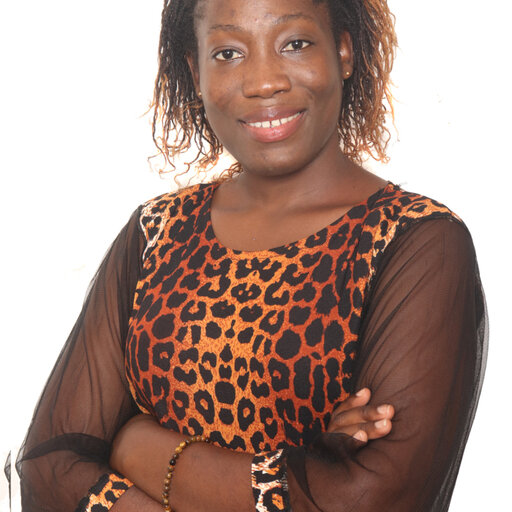
Kafayath Fabiyi is renowned for her groundbreaking research into bacterial resistance. Her main aim is to protect vulnerable communities in Africa and around the world from infectious diseases. In Benin, she passionately balances her research commitments with her family life, paving the way for excellence with her unwavering scientific rigor and determination. She designs cutting-edge research papers and community engagement activities.
Jedidah Jacob (Nigeria), PhD in Conservation Biology Department of Zoology
University of Jos
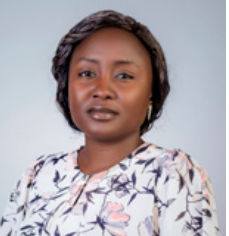
Jedidah Jacob is recognized for her work in plant and pollinator conservation in the Nigerian savannah. She faced challenges such as lack of resources and funding for her research project, which forced her to adapt her methodology. On a personal level, her family sold their land to finance her MSc.
Aderonke Korede (Nigeria), PhD candidate in Agricultural and Food Biotechnology Food Chemistry Laboratory, Department of Food Science
Ladoke Akintola University of Technology
Aderonke Korede has won an award for her chemistry research into the benefits of shea olein. Based in Nigeria, she overcame the lack of female role models and discriminatory policies to progress as a woman in science. Aderonke was encouraged by her thesis supervisor, and it was on his shoulder that she “climbed to see the world of science”.
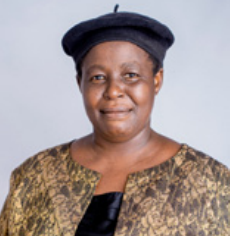
Emma Edinam Kploanyi (Ghana), Doctoral student in epidemiology Department of Epidemiology
School of Public Health, University of Ghana
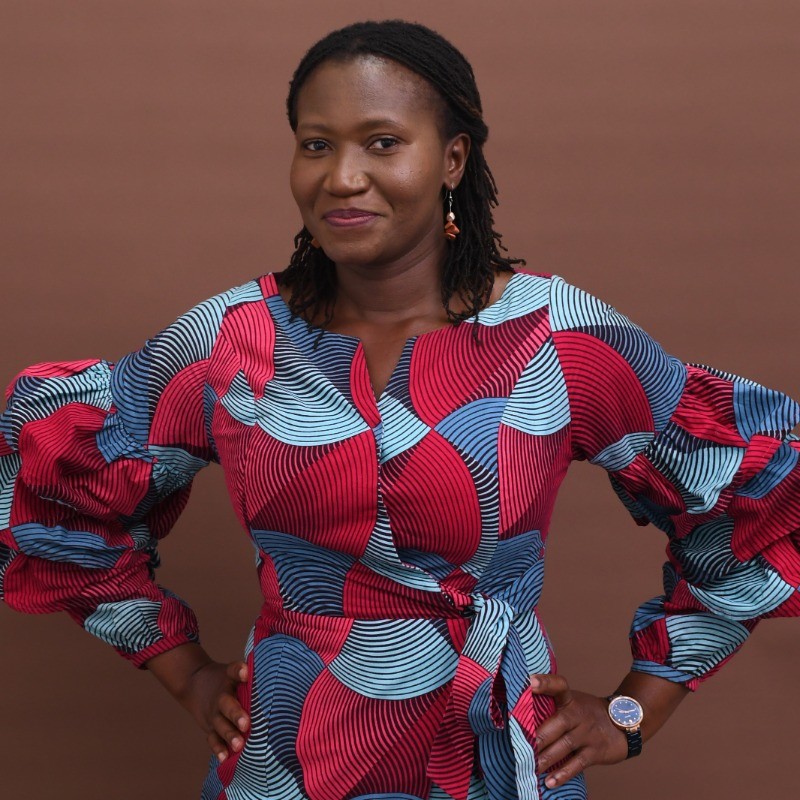
Emma Kploanyi has been recognized for her research into the treatment of viral hepatitis B and C in Ghanaian hospitals. She also contributes to national plans to eradicate these diseases. Emma is determined to follow her chosen path, and is supported on her journey by dedicated mentors.
Fatou Lo Niang (Senegal), PhD student in artificial intelligence
Computer and Numerical Analysis Laboratory
Gaston Berger University
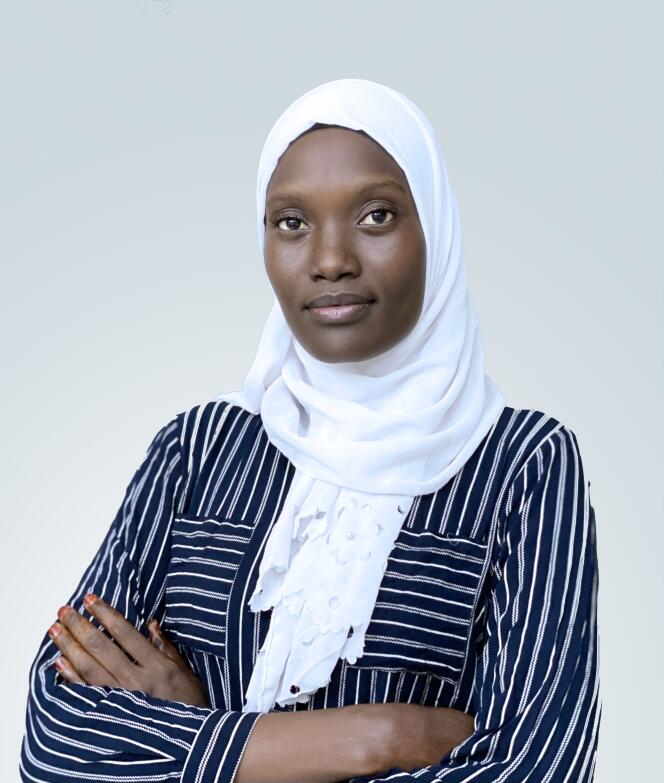
Fatou Lo Niang is rewarded for her efforts in using machine learning and artificial intelligence to improve the management of cardiovascular disease. Based in Senegal, she moved away from her community to study and was greatly encouraged by her tutor, whose dynamic teaching inspired her to pursue excellence in her studies.
Rahimat Yakubu (Nigeria), PhD student in electrical and electronic engineering Laboratory: Engineering Training Project
Institution: Kwame Nkrumah University of Science and Technology, Ghana
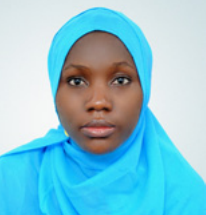
Rahimat Yakubu is rewarded for her work in advancing clean energy research in Nigeria, helping to expand access to solar technology in cities and rural communities, enabling more people to improve their health, education and economic prospects.
